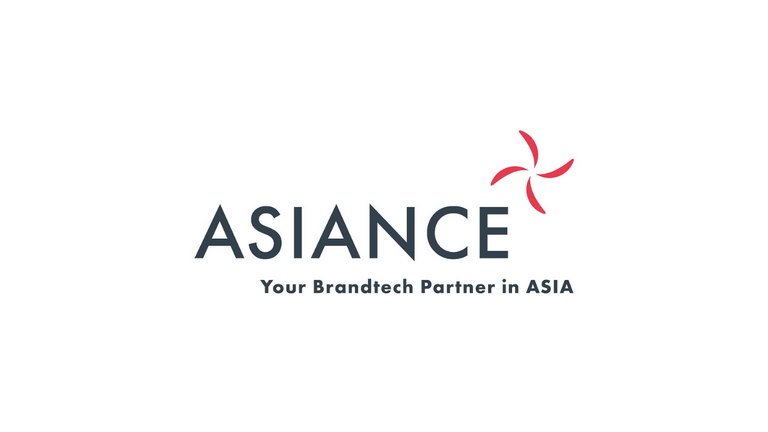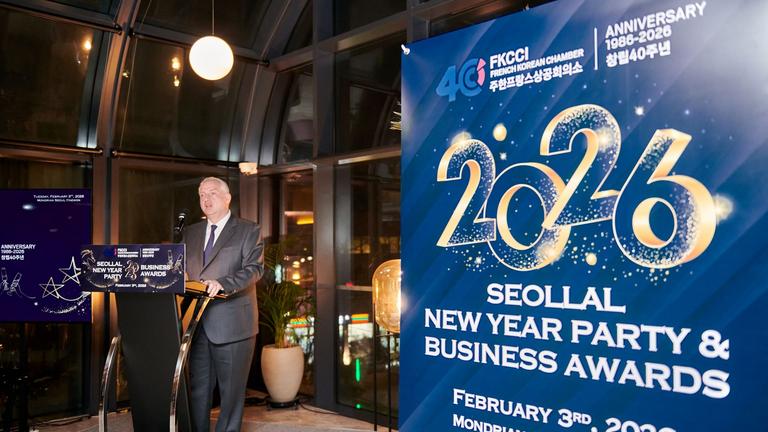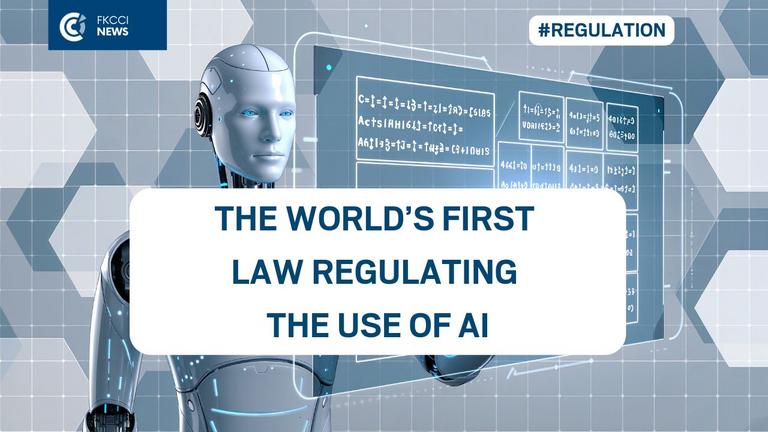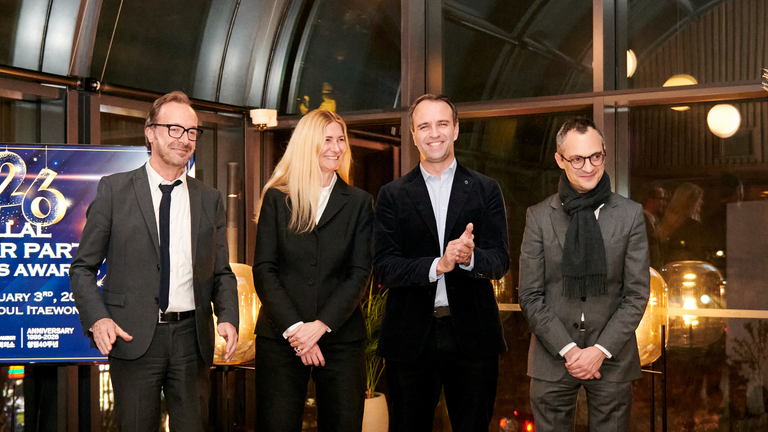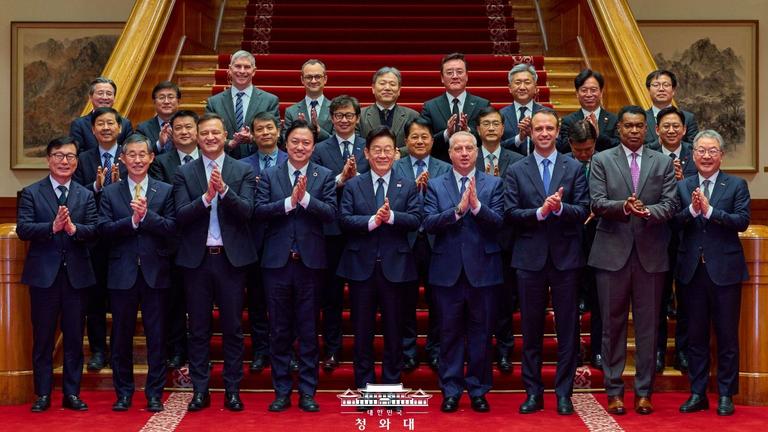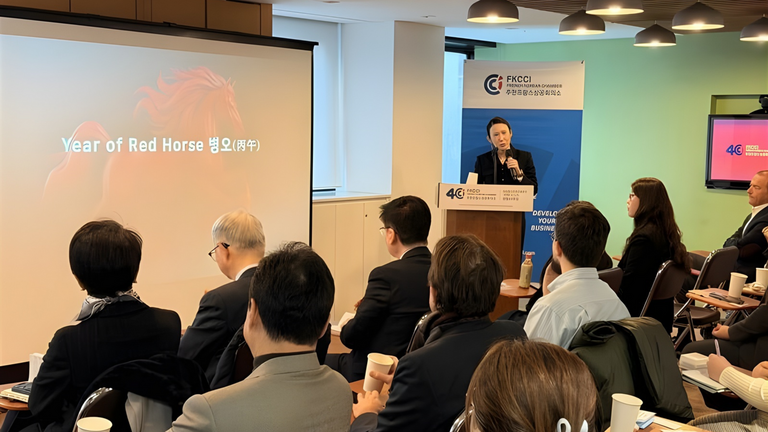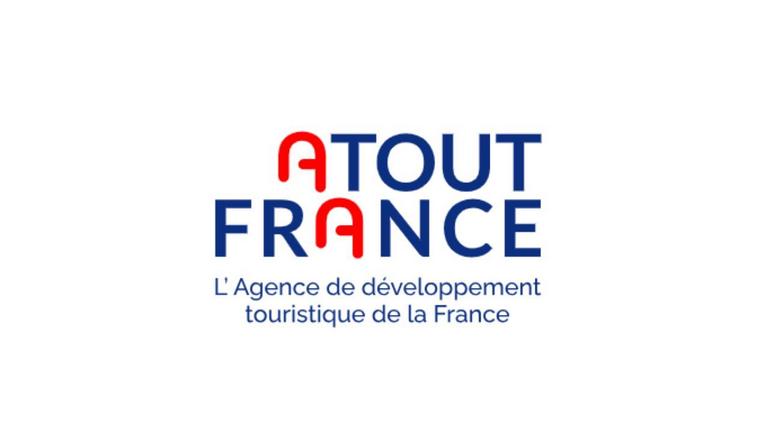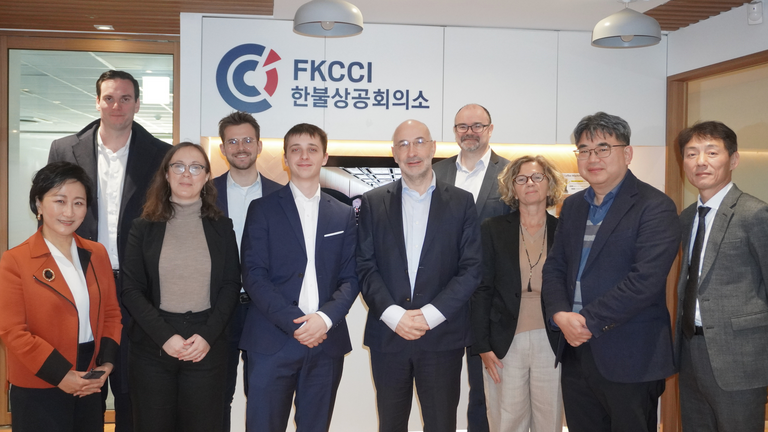Webinar • COVID-19 • Bilans d’évènement • Publications T.I.C. - Informatique
Webinar Covid-19 - ICTs framework and data privacy in Korea
On April 28th, the FKCCI organized a webinar with more than 250 participants on Korea's ICT framework and data privacy regarding Covid-19.
The webinar gathered Mr. David-Pierre Jalicon, FKCCI Chairman and CEO of DPJ & Partners Architecture, H.E. Mr. Philippe Lefort, French Ambassador to Korea, H.E. Mr. Jong Moon CHOI, Korean Ambassador to France, Mr. Ik Jin LEE, Director in charge of the “Smart Management System” at the Ministry of Land, Infrastructure and Transport (MOLIT), Mr. Young Joon PARK, Director of the “Smart management system” at the Korean Center for Disease Control & Prevention (KCDC, Ministry of Health), Mr. Philippe LI, Honorary Chairman of FKCCI & Attorney at Kim & Chang, Mr. Olivier MOUROUX, Vice-president of FKCCI & CEO of Asiance, and Mr BYUN Hyung Gyoun, Vice-President at KT.
The Korean Smart Management System, operating since March 26th and using data such as mobile GPS, CCTV or card transaction log, has drawn a lot of attention from the global community due to its efficiency in preventing the spread of Covid-19 virus. The webinar helped understanding this complex cross-institutional system at the crossroad of ICT, big data technologies and data privacy issues.
In this regard, the MOLIT could share its insight on how Korean smart city technology was used and adapted to the Covid-19 situation. “The Ministry of Land, Infrastructure and Transport is researching and developing a smart city hub platform that generates and analyzes quickly large amounts of city data. In February, one of the researchers came out with an idea and started to develop the Covid-19 system” Mr. Lee said.
The KCDC could also share its technical analysis of novel investigation techniques for contacts tracing of infectious disease. According to Mr. PARK from KCDC, “key elements are the rapidity and accuracy of data, as the period of incubation of corona is short and this is a new disease”. For Mr. MOUROUX from Asiance, the Korean success is reinforced by its reactivity: “all information coming from various sources is at the disposition of KCDC staff, in what we call a “war room”. This crisis cell allows the visualization of all relevant data on screens of a single room. What is striking is the exceptional short time of implementation of this system: less than a month!”
Speakers highlighted that his technology alone is however not enough to fight the pandemic. The human factor remains important according Mr BYUN from KT: “We use data from telecommunication operators to retrace the places visited by patient […]. All data helps us to evaluate risks but are not enough to identify all infected people. Therefore, the experience of Covid-19 investigators is really important”.
Regarding the issue of data privacy, the speakers highlighted that the use of personal information has always been regulated in a democratic context, as the Personal Information Protection Act came in force in 1995 (amended in 2015 and 2020 after the MERS and Covid-19 outbreaks). Regarding the Covid-19 system, several safeguards are also in place such as the strict limitation of information use to preventing infectious diseases, the obligation to notify the relevant party and to destroy all collected data after the relevant task is over, according to Mr. Philippe LI.
For H.E. Mr Philippe LEFORT, Korea’s success can be summarized in a few key elements: “a centralized, ingenious and agile management responding to high expectations of the public and in the framework of the Law. The Korean experience is the topic of many discussions between the institutions and experts of our countries.”

